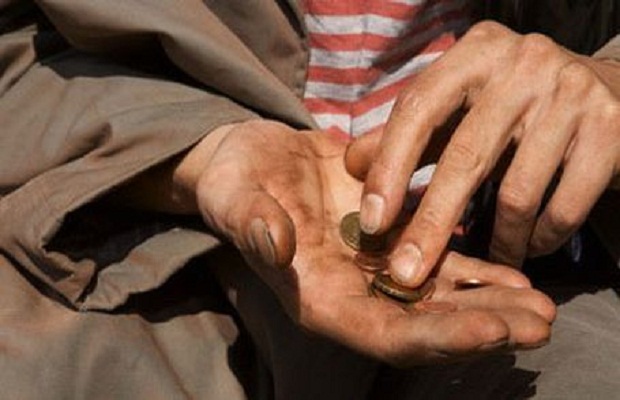
The greatest obstacles in achieving reconciliation are public discourse, the absence of an agreed upon view of the past, and the nationalist rhetoric and hatred imposed upon us by the ruling elites. The dynamic process of transitioning from a socialist society to a society described as brutally capitalist, with clear nationalist features, has left its …
The greatest obstacles in achieving reconciliation are public discourse, the absence of an agreed upon view of the past, and the nationalist rhetoric and hatred imposed upon us by the ruling elites.
The dynamic process of transitioning from a socialist society to a society described as brutally capitalist, with clear nationalist features, has left its scars on my local community too. The destruction of industry and agriculture in Prijedor has caused great suffering and poverty, and suffering and poverty further enabling a variety of pathological phenomena. Bosnia-Herzegovina is a country in transition, deeply divided among many lines in which those who rule only seek to gain advantages. Bosnia is a country in which more and more people reduce the size of their meals due to poverty. I see that the transition process has divided people even further and implanted many stereotypes. I live in an environment where the system of values has been entirely destroyed, and where children are taught to hate each other. Unfortunately, in Prijedor many people still judge others based solely on their names. The situation in Bosnia seems to be out of control, the nationalistic rhetoric imposed upon the people is being adopted and embraced blindly even though it only worsens the situation. The greatest obstacles to the process of reconciliation, therefore, seem to be public discourse, the absence of an agreed view of the past, and the nationalist rhetoric and hatred imposed upon us by the ruling elites.
I think that the process of transition has played a major role in constructing the reality we live in today. It has revealed the darkest human urges and completely pushed aside solidarity and humanity.
– Nikola Kurdiza (Prijedor) –
I think that the primary obstacle to the process of reconciliation is fairly clear to all citizens. The economic despair the country finds itself in seems to be a barrier impossible to overcome. In this despair, it is important to emphasize youth unemployment as one of the fastest growing issues. Consequently, Bosnia has been placed at the top of Europe’s blacklists. Without adequate economic growth, all possible progress remains only an imagination. The second part of the problem, or rather its cause, is the ever-present corruption of the system as a whole as well as institutionalized crime, which both equally serve as further obstacles in the process of reconciliation and general progress. All other issues, it seems, might be resolved if only there were less people who were systematically marginalized and driven out of society. One of the ways in which to tackle the existing issues is undoubtedly people’s self-organization through civil society. The progress and improvement of a worker’s life needs to be initiated by the workers themselves or it simply will not happen at all. Conclusively, the reconciliation process in Prijedor, is one of the most dynamic in Bosnia.
The absence of an agreed upon answer to the question of “what happened in the 90s” contributes to general scepticism towards the reconciliation process. An answer is primarily needed for all of us to accept the acts as truths, to punish those who committed crimes, and to harshly judge their misdeeds. Since politicians have such great influence, every single hate speech and all denial of proven facts ought to be harshly punished, which would, in turn, force upon the ruling elites their engagement in the process of reconciliation.
I think that the process of transition has not helped my local community whatsoever. I feel like we are in a floating state, not stationed nor really flying. In this situation we simply do as much as we can to critically assess the information that is given to us.
– Zorana Dabic (Prijedor) –
Reconciliation is a multipart and multilayered process that is hard to follow and execute. If reconciliation means congratulating each other on our different religious holidays, as I feel it does to many people, then we have a serious problem. Young people do not have a problem with reconciliation. I often hear the phrase “why do we have to forgive each other, we never even fought?” I may sound pessimistic, but my reality gives me no other alternative. I doubt that there is a “better tomorrow.” I think the only solution is revolution; a revolution in people’s minds, an awakening. Kozarac used to be a municipality, but now it belongs to the city of Prijedor and is inhabited by predominantly Bosniaks. Bosniaks are treated as second class citizens by the local authorities. The first steps in the transitional justice process are still being carried out and only include the establishment of facts and punishment for the perpetrators.
In order to achieve true reconciliation, we first need to determine the facts. That’s where we encounter the first issues, simply because politicians are not showing any interest in engaging in the process of reconciliation.
– Ines Ilijasevic (Kozarac) –
It is often said that in order to move forward we need to leave the past behind us. But I think that there will be no true reconciliation until we face and deal with our past. In the meantime, everybody writes their own past.
According to the Agency of Statistics’ data from February 2014, BiH has 556 868 (44.6 %) unemployed people, which is much higher than the regional average of 27%. In other words, one can talk about the negative effects of transition in many ways, including the economic aspect, the quality of the education, and the healthcare system, etc.

When it comes to reconciliation, I think the primary problem is terminology. I wonder if we can talk about reconciliation and restoring trust among Bosnia’s peoples without having them face their own past first.
– Goran Zonic (Prijedor) –
This is exactly the case with Prijedor as well. The sweeping under the rug of the horrible crimes for the sake of restoring trust only increases the potential for new conflict. The lack of compensation for the victims, as well as the absence of their essential rights, only deepens the lines of national division. In order to move forward in the process of reconciliation, it is necessary for the Serb population to face the crimes committed by individuals of this nationality in the name of this nation.

To conclude, it is evident that the transition process has left a negative mark on my local community. I feel as if we are moving backwards rather than forwards. In the streets I encounter sad and dissatisfied young faces every day. These people have previously been enthusiastic and hard working, but have become disappointed since it is impossible for them to improve in any respect. There are more and more hungry people every day, yet what matters more is which nationality the hungry ones belong to. One of the main obstacles towards a “better tomorrow” is the division between “us” and “them”. I believe that a brighter future will not come until we realize that there are only good and bad people, regardless of their names. I think that we should teach our children real values—love and not hatred.
The process of reconciliation needs to include the acceptance and respect of others, equal rights for all citizens, and non-discrimination and cooperation.






